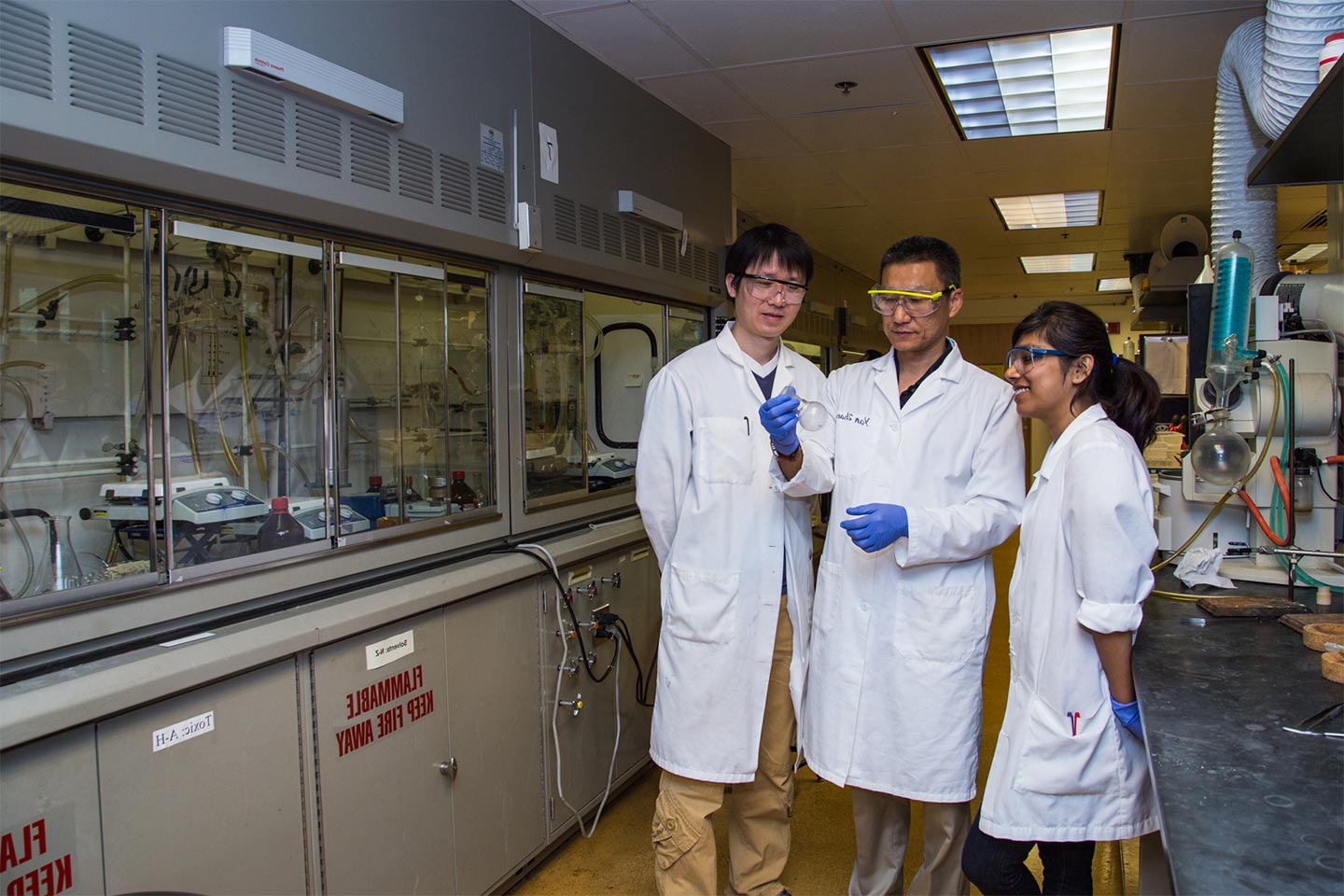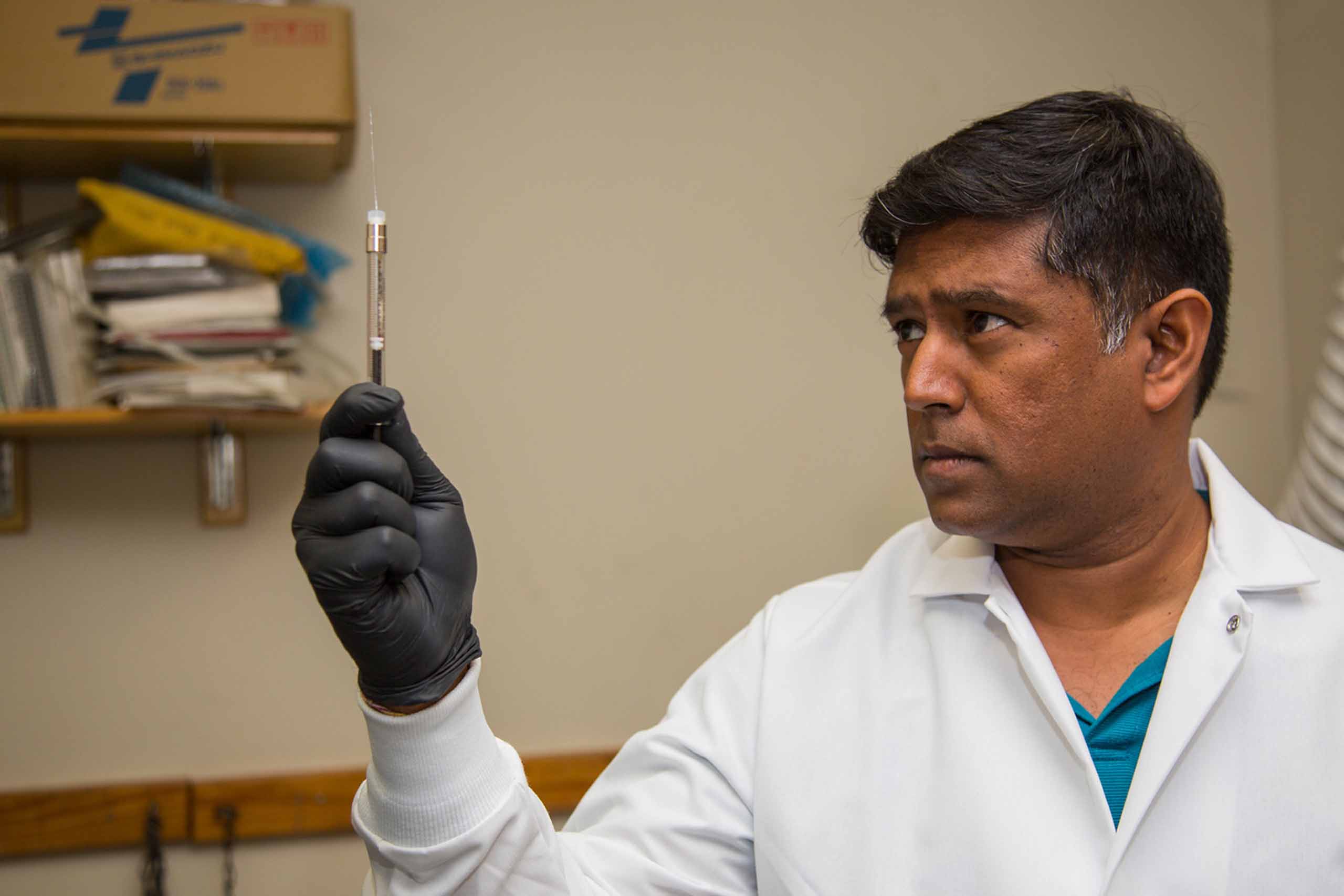
Announcing our new B.S. in Pharmaceutical Sciences
Explore our undergraduate program: B.S. in Pharmaceutical Sciences

Which research areas are you focusing on now?
Our research program is focusing on drug design, discovery, and development to treat various neurological disorders, including drug abuse/addiction, pain, HIV/AIDS, cancer, and neuroAIDS.
Tell me about your latest NIH grant.
We recently received a five-year grant from NIH/NIDA to study a series of novel bivalent ligands developed in our lab as chemical probes to understand the putative role of mu opioid receptor (MOR) and chemokine receptor CCR5 in the development and progression of NeuroAIDS. This project is a long-term collaboration between my lab and Dr. Kurt Hauser's lab in Pharmacology and Toxicology.
What is the outcome that you are trying to achieve with this research?
We expect these novel chemical probes will help understand the disease mechanism and further define the dimerization of MOR and CCR5 as a potential target for therapeutics development.












